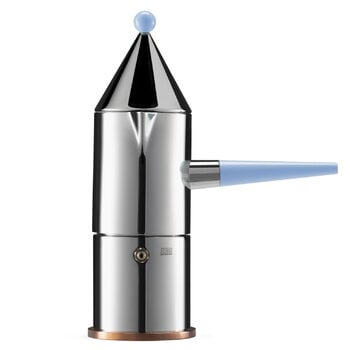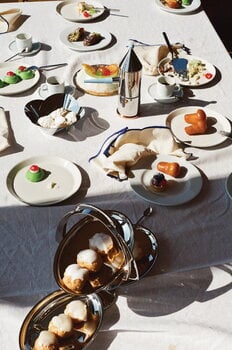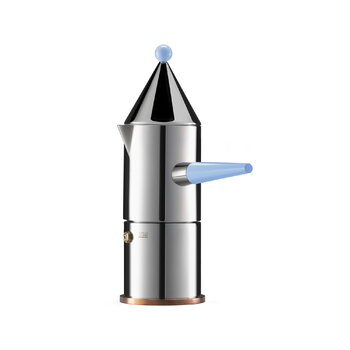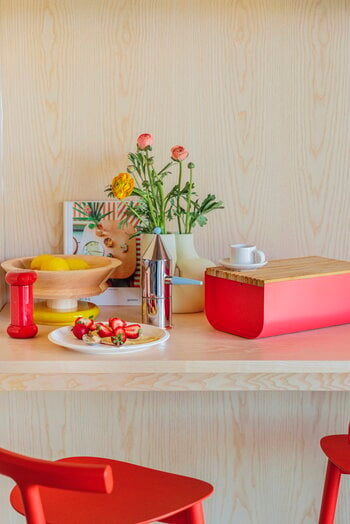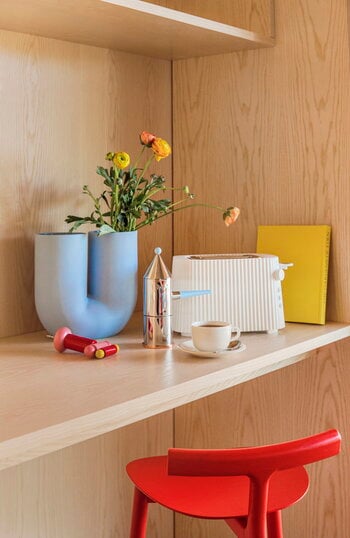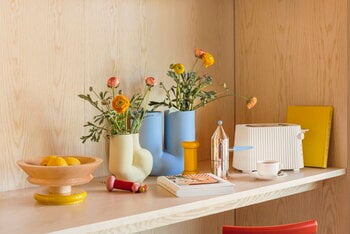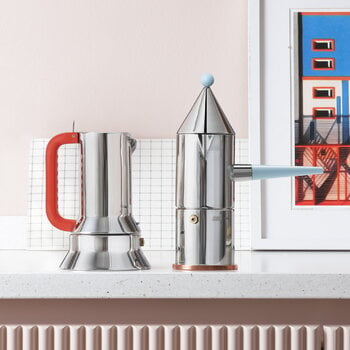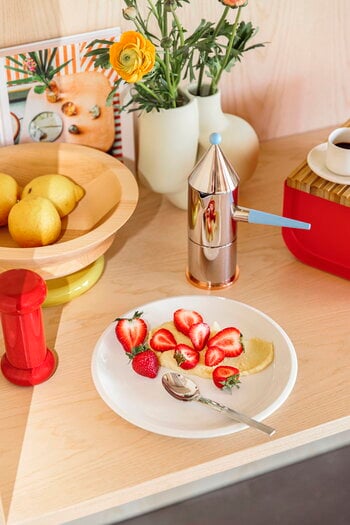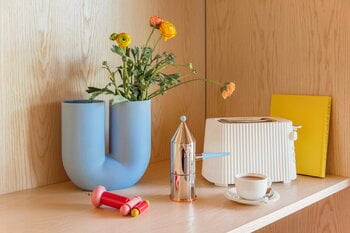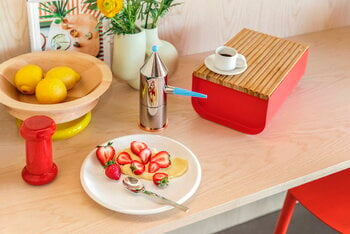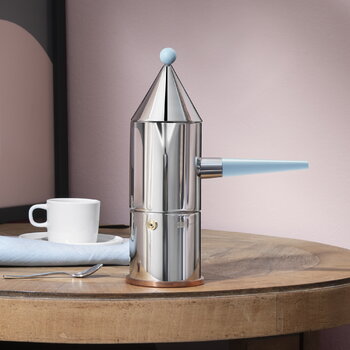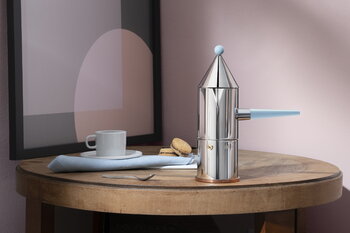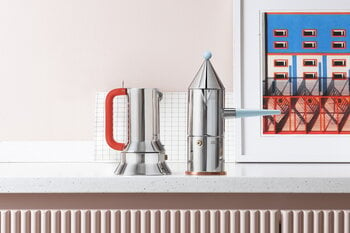Alessi’s La conica espresso coffee maker, designed by Italian architect Aldo Rossi in the 1980s, is sure to make a statement in the kitchen and any table setting. La conica's elegant appearance is a combination of three geometric elements: a sphere, a cone and a cylinder. The name La conica refers to the conical lid. The 3-cup La conica espresso coffee maker is made from stainless steel.
The Alessi Values Collection was launched to celebrate the centennial of the famous Italian design house. The sixth part of the collection is called Research Lab, which refers to the more experimental side of industrial design – Alessi is like a research center where designers can do their experiments. One of these experiments is a version of Rossi's iconic espresso maker with an elongated handle; this was actually Rossi's first version of the design.

